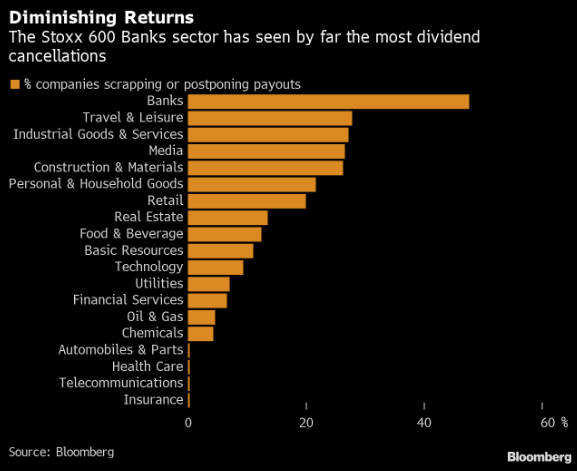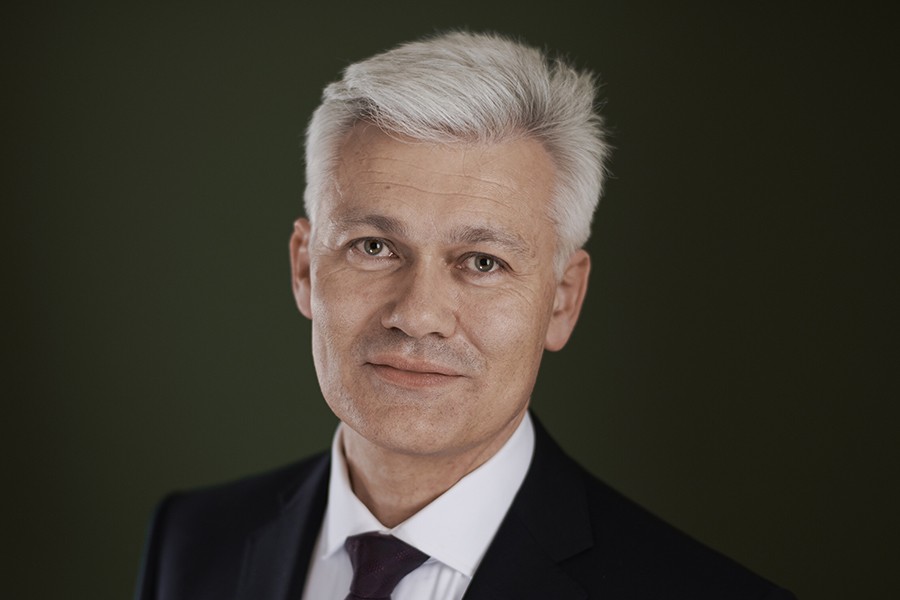By now everyone should be aware that we are in a deep global recession.
Markets are now entering the next stage of this crisis. First stage was the panic inducing shock of an out-of-control virus spreading around the globe. This was then followed by the prospect of a never-before-seen policy-response.
Now the “economic fallout phase” has arrived, in which we get to see hard data prints of the economic full-stop in the West – while infection cases are still rapidly rising in the US.
This means that the next weeks will likely shake many investors’ confidence and make them question their positioning.
- The US Federal Reserve estimates that Coronavirus job losses could total 47 million and that the unemployment rate may hit 32% in the second quarter.
- President Trump proposed a USD 2 trillion infrastructure plan, but nothing tangible yet.
- It seems increasingly likely that we will see another fiscal bill forming in the US throughout April/May.
- Emerging Markets could be hit particularly hard. They have taken on huge amount of USD debt in recent years and are now facing dropping USD reserves as many of them are oil suppliers and USD income from tourism has more or less disappeared.
- The IMF will have a lot of work to do in coming months.
- Seems to us that the whole world (including President Trump) would like to see a weaker USD.
- Nordea estimates that by now enough USD liquidity has been created to weaken the USD by at least 10%.
Pandemic:
- Spain and Italy have likely peaked already while France is probably close to peaking in the next week.
- On the amount of active cases as a percentage of total cases Spain is further on the path to recovery than Italy.
- The UK and the USA remain in the acceleration phase. The White House estimated that peak growth could come in 2 weeks which may turn out overly optimistic.
Oil:
- Crude in the USD 20 area continues to threaten the oil industry’s solvency.
- Russia’s decision not to increase output may help and so is China’s decision to build up oil reserves, but the supply-glut needs to ease before any durable recovery.
- Should the world run out of oil storage prices could go substantially lower in theory. However, there would likely be intervention in the market before this point would be reached, even despite the ongoing Saudi/Russia dispute.
- Today President Trump surprised the markets with two tweets, stating that Russia and Saudi Arabia may be willing to cut production by 10 to 15 million barrels/day.
- At the time of writing the two parties have not confirmed his statement. Hence we recommend to take this development with a grain of salt for now.
- While a production cut of that magnitude would certainly help oil prices on the margin, some analysts estimate the total demand collapse on the other side is amounting to 20 – 30 million barrels/day.
Bottom Line:
The coming days will tell us to what extend the recent bear market rally was just driven by quarter end rebalancing. In the past, bear markets almost never ended on a single massive sell-off without retesting the bottom. We will see how this one turns out.
The good news is that policy makers have acted early and boldly which should help to avoid a long, structural recession. It remains important to note that this time the shock is not coming from a fragile financial system like in 2008. Also in the run-up to this crisis we saw companies with better balance sheets, consumers with higher savings rates and record employment.
All this means that there are still reasonably good chances for a recovery in the second half of this year.
For now questions regard duration of lockdowns and whether policy can curb a consumer confidence crisis will continue to fuel market uncertainty in the weeks ahead.
Positing:
Our view on equity markets remains unchanged: There has already been significant value created on individual stock basis as some funds liquidated good stocks together with bad assets. The global stock market in aggregate and the US market in particular did however not reach really cheap levels (yet).
- Hence, we used the recent rebound to lighten up on broad market exposure.
- On the other-hand we have and will continue to buy week-by-week into our most preferred high quality equity names. We believe that many of the old leaders (for example MSFT, GOOGL, AMZN, NESN, ROGN) should come out strong on the other end.
Furthermore, we increased our strategic and tactical Gold exposure.
We see the combination of negative real yields and rising fiscal deficits as strongly favoring Gold vs other “safe havens” like sovereign bonds. On this account, net issuance of T-bills will hit a record of USD 279 billion this week as the U.S. Treasury starts funding that USD 2 trillion stimulus package. We will be watching carefully how this effects the yields on US Treasuries.
Your FINAD CIO Team
Source: Bloomberg, The Market Ear, Goldman Sachs, Alpine Macro, JP Morgan, Hightower Advisors, PineBridge, HSBC, Gavekal, Canaccord, Natixis, Morgan Stanley, MRP Partners, The Morning Brew
Appendix
Dividends are no place to hide…
We have been pointing out how this bear market is different. It is important to understand that this is not a “balance sheet crisis” like in 2008 but a “cash flow crisis”.
A significant portion of the global economy is confronted with revenue streams falling to zero. All these companies are now desperate to reduce liquidity outflows. This means that a lot of dividends have and will be cut. Many companies are even facing political pressure to do so.
In consequence, the old wisdom to take cover in high yielding dividend stocks will not work in this crisis. This is especially relevant for European stocks as they tend to have higher dividend yields compared to the US. For pension funds heavily invested in income strategies, the blow could be especially severe.

- Morgan Stanley strategists see “unprecedented pressure” on European dividends, identifying 94% of payouts in retailing and 70% in luxury as at-risk.
- At least 96 companies in the Stoxx 600 Index have already canceled or delayed their dividends.
- The French government warned it will cut or withhold financial support from firms paying dividends and urged boards to preserve liquidity to support staff and operations.
- Germany’s listed companies will be asked to suspend dividend payments to qualify for assistance in an aid program involving loans and guarantees from state-owned development bank KfW.
- The European Central Bank said it can force lenders (banks) to postpone dividends
- If banks pay no dividends and all other sectors suffer the same drop as seen in the global financial crisis, the overall market would see payouts fall 42%
- Assuming zero dividends from banks and oil producers, and other sectors matching 2008 declines, the overall drop would be 52%.
- If figures across all sectors are same as during GFC, dividends would fall 37%

